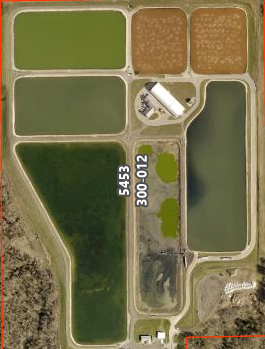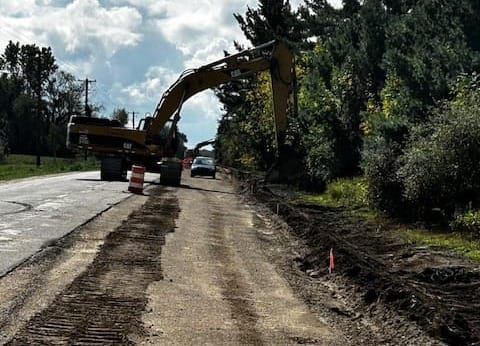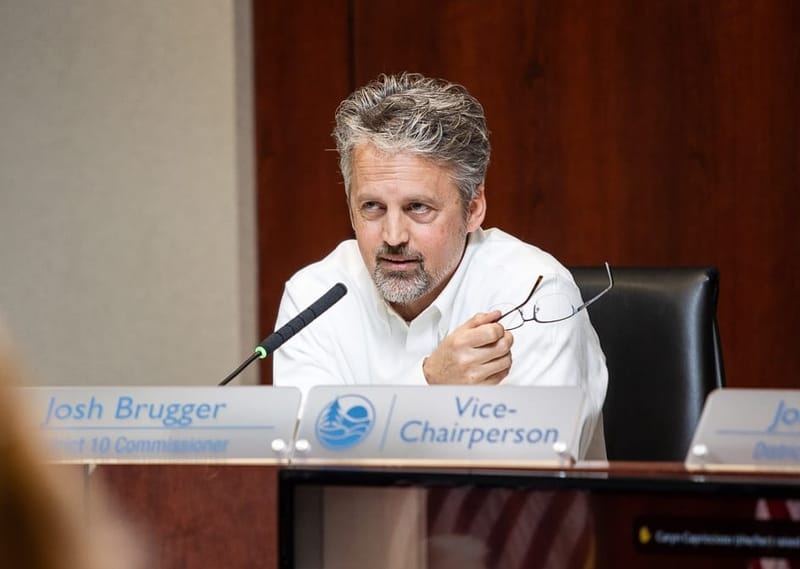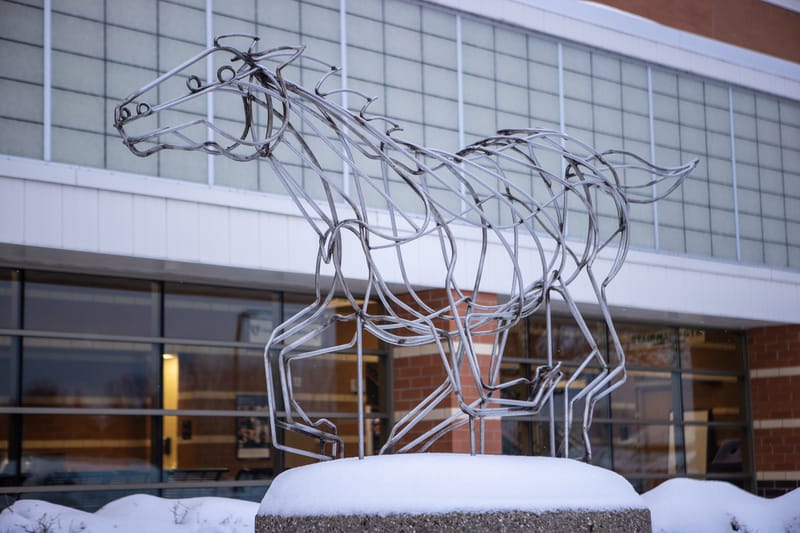Ottawa County’s west corridor poised for growth as Coopersville retires wastewater plant
By this time next year, the Coopersville wastewater treatment plant will be decommissioned, rerouting its industrial and municipal waste to a vast, $72 million regional system.
COOPERSVILLE — By this time next year, the Coopersville wastewater treatment plant will be decommissioned, rerouting its industrial and municipal waste to a vast, $72 million regional system.
The project, known as the Southeast Regional Force Main, connects the city's overflowing pipes to the extensive, underutilized capacity of the Muskegon County Resource Recovery Center via a new 20-mile, 30-inch force main.
Coopersville city officials say they are considering several options for the 71-acre lot in Polkton Township where the current wastewater plant operates once it’s vacant, officials said. It’s currently zoned AG-1 or agricultural.
“We are still evaluating some different options,” said City Manager Dennis Luce. “There is interest from some private companies that inquired about renting the building/lab for different water and wastewater testing as we have the equipment.”

The buildings at the wastewater facility are going to remain there, he said, and the biosolids from the ponds will be cleaned out. Biosolids are treated solids from municipal sewage that are processed to be a stable, nutrient-rich material, similar to soil, suitable for beneficial reuse, most commonly as a soil conditioner or fertilizer.
They contain organic matter and nutrients essential for plant growth and are regulated by the U.S. Environmental Protection Agency and state environmental agencies to ensure they meet strict safety and quality standards before land application.
“Three of the ponds will be used as emergency storage just in case there is a break or other issues with the (Southeast Regional Force Main). There will be a minimum of 10 days of storage. Another pond will be used to collect storm water,” he said. “We are evaluating if this water could be used by local farmers for irrigation.”
The big picture
The massive infrastructure project is set to fundamentally reshape the economic landscape of northern Ottawa County, clearing the most significant barrier to expansion for the region's massive agricultural and food processing industry.
For Coopersville and surrounding areas, the move effectively solves a wastewater crunch that has throttled local development for years.
“This turned out to be a perfect opportunity for a regional partnership that will offer substantial benefits and opportunities for growth to our current and future industries,” he said.
Coopersville Mayor Ken Bush said the city and its industries were operating at a disadvantage before the pipeline. The city’s wastewater plant was at about 70 percent capacity, and the two big industrial users — fairlife and Continental Dairy — were often exceeding their permitted limits with the city and the state.
“We had to limit them on how much they could send to the wastewater because it would overload us,” Bush said, noting the city had to work with the Michigan Department of Environment, Great Lakes, and Energy to manage the wastewater loads.
The mayor added that the project will have benefits beyond Coopersville.

“This became a project for many communities, and that's why we formed this alliance with all of these municipalities through Muskegon County, and to make this happen,” he said.
The multi-phase transition to the new connection will start early next year.
- February 2026: The largest industrial users, including Fairlife and Continental Dairy, are expected to connect to the new regional force main and divert their waste.
- Summer 2026: The City of Coopersville's residential and commercial flows are scheduled to be fully connected to the new system by August 2026. That has to occur after the dairies are diverted, as the city will repurpose a segment of the dairies' current pipe to route its own waste to the new W. Randall Lift Station.
- Fall 2026: The existing Coopersville wastewater facility is scheduled to be decommissioned.
A necessary transition for economic engine
The decision to join the regional system comes despite a recent local investment.
Coopersville previously bonded $4.3 million in 2018 for significant improvements, boosting the plant's capacity to 2.5 million gallons per day of treated waste. However, the volume and high-strength waste from Continental Dairy and Fairlife quickly pushed the facility to its limit.
Support Our Work
Ottawa News Network is a nonprofit news service dedicated to providing the residents of Ottawa County with trustworthy, community-driven news. ONN treats journalism as a public good — something that enriches lives and empowers Ottawa County’s 300,000-plus residents to stay engaged, make informed decisions, and strengthen local democracy. Please consider giving today.
The Muskegon County solution just made sense, Bush said.
"It takes care of a lot of those situations where we don't have to expand our sewer system again. We've put a lot of money in that sewer system to try to make that capacity bigger. We were near full capacity already," he said.
In addition to Coopersville’s waste, the line will serve other businesses critical to the region's supply chain, including DeVries Meats, Applegate Dairy, and Swanson Pickle.
The economic forecast for Ottawa County and the state is significant. The five major companies connecting to the line rely on 884 Michigan suppliers across nearly 40 counties, suggesting a widespread economic ripple effect, Luce said.
This development directly supports Michigan’s food and agriculture industry, he said, which contributes an estimated $104.7 billion annually to the state's economy.
— Heather VanDyke covers northern Ottawa County for the Ottawa News Network. Contact her at hvandyke@ottawanewsnetwork.org.





